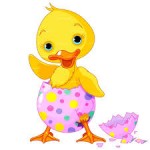Firstly the word “duck” as a term of greeting has nothing at all to do with the winged bird of the same name.
It is said to find its origin in the Saxon word ‘ducas’ which was meant as a term of respect; similar to the Middle English ‘duc’, ‘duk’ which denotes a leader, commander; from which comes the title ‘Duke’ and the Old French word ‘ducheé’ – the territory ruled by a Duke.
From these origins it became a greeting and then a term of endearment. This use of ‘duck’ as a greeting is not restricted to the Potteries; although the use here is very common. It is still used in many parts of what was Mercia. Even though they have very different dialects from the Potteries the greeting is used in the Black Country, in Derbyshire, as far east as Warwickshire and Nottinghamshire. In Yorkshire the main term of greeting is ‘luv’ but in Sheffield, which is close to the Yorkshire – Derbyshire border the greeting ‘Ey up me duck’ can be heard.
So don’t be offended if someone calls you duck, you now know that it is a term of respect and is no way implying that you a have a beak, feathers or that you make a quacking noise when you talk.
In Midsummer Nights Dream Shakespeare uses the phrase ‘O dainty Ducke: O Deere!” as a term of endearment.
This item was supplied by Anthony A Page for our perusal.



Leave a Reply